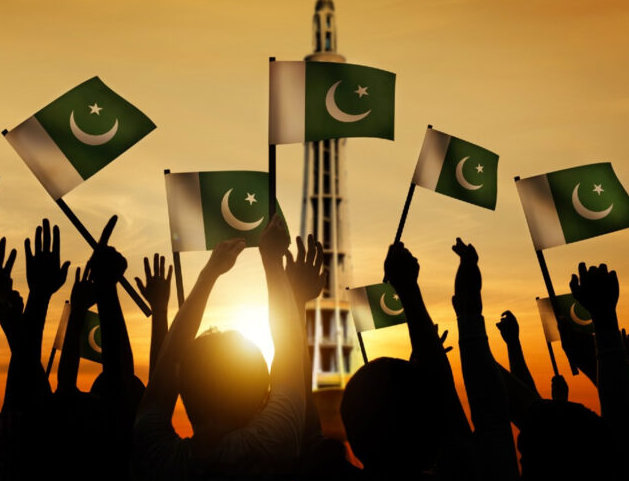Bolivia National Day is a significant occasion that commemorates the independence of Bolivia, a landlocked country in South America. Observed annually on August 6th, this day holds great importance for Bolivians worldwide, as it marks the nation’s liberation from Spanish colonial rule in 1825. The celebration not only highlights Bolivia’s historical struggles for freedom but also showcases its vibrant culture, diverse traditions, and natural beauty. In this article, we delve into the significance of Bolivia National Day, explore its historical background, delve into the country’s cultural tapestry, and provide answers to frequently asked questions about this momentous occasion.
Historical Background of Bolivia National Day: Bolivia’s Struggle for Independence
Bolivia’s path to independence from Spanish colonial rule was a long and arduous one. The seeds of rebellion were sown during the Napoleonic Wars in Europe, which weakened the Spanish Empire’s hold on its American colonies. Inspired by the ideals of liberty and equality, Bolivian patriots led a series of uprisings against Spanish authority, culminating in the Battle of Ayacucho on December 9, 1824. The decisive victory of the combined forces of South American independence fighters led by Simón Bolívar and Antonio José de Sucre sealed Bolivia’s path to freedom.
The Significance of Bolivia National Day
Bolivia National Day, also known as “Día de la Independencia,” holds immense significance for Bolivians worldwide. It serves as a reminder of their ancestors’ courage, determination, and sacrifice in the pursuit of freedom. This day is an occasion to honor the heroes of the independence movement and to reflect on the progress Bolivia has made as a sovereign nation.
Celebrations and Traditions on Bolivia National Day
Military Parades: One of the highlights of Bolivia National Day is the grand military parade held in the capital city of La Paz. The armed forces showcase their strength and discipline, and citizens line the streets to watch and celebrate.
Cultural Festivities: Across Bolivia, cultural festivals, music performances, traditional dances, and art exhibitions take place during the National Day celebrations. These events offer a unique opportunity to experience the country’s rich cultural heritage.
Patriotic Ceremonies: Official ceremonies are organized in various cities, including La Paz and Sucre, where the Bolivian flag is raised, and speeches are delivered to commemorate the significance of the day.
Cultural Showcase: Bolivia’s Rich Tapestry
Bolivia’s cultural heritage is a vibrant amalgamation of indigenous traditions, mestizo influences, and colonial legacies. From its diverse ethnic groups, each with its distinct languages, clothing, and customs, to its impressive artistic expressions and culinary delights, Bolivia captivates visitors with its cultural tapestry.
Indigenous Traditions: Bolivia is home to numerous indigenous groups, including the Aymara, Quechua, and Guarani people. These communities preserve their ancestral customs, such as traditional music, dances, rituals, and vibrant textiles.
Folklore and Art: Bolivia’s folklore is expressed through colorful costumes, masks, and intricate dances, which narrate ancient stories and legends. The country also boasts a thriving arts scene, with renowned painters, sculptors, and craftsmen creating stunning works that reflect Bolivia’s unique identity.
Gastronomy: Bolivian cuisine showcases a blend of indigenous ingredients and Spanish culinary influences. From the hearty salteñas (stuffed pastries) to the flavorful sajta de pollo (spicy chicken stew), Bolivian dishes tantalize the taste buds and provide a glimpse into the country’s culinary traditions.
Conclusion
Bolivia National Day is an important celebration that honors Bolivia’s hard-fought independence from Spanish colonial rule. The day serves as a reminder of the nation’s historical struggles, while also showcasing its rich cultural tapestry and diverse traditions. Through military parades, cultural festivals, and patriotic ceremonies, Bolivians come together to commemorate their shared heritage and celebrate their country’s achievements. This day offers a unique opportunity for both Bolivians and visitors to immerse themselves in the captivating beauty and vibrant spirit of Bolivia, a country known for its breathtaking landscapes, warm hospitality, and fascinating cultural heritage.
Frequently Asked Questions (FAQs):
- Is Bolivia National Day a public holiday?
Yes, Bolivia National Day is a public holiday throughout the country. Banks, government offices, and schools are closed on this day.
- How do Bolivians celebrate National Day?
Bolivians celebrate National Day through various activities, including military parades, cultural festivals, patriotic ceremonies, and public gatherings.
- What is the significance of the Bolivian flag?
The Bolivian flag, consisting of horizontal stripes of red, yellow, and green with the coat of arms in the center, symbolizes Bolivia’s indigenous heritage, natural resources, and its struggles for independence.
- Are there any traditional dances associated with National Day?
Yes, traditional dances play a prominent role in the National Day celebrations. The Diablada, Caporales, and Morenada are among the well-known dances performed during this festive occasion.
References:
- “Independence Day in Bolivia.” Office Holidays.
- “Bolivia: History.” Britannica.
- “Bolivia.” The World Factbook. Central Intelligence Agency.
- “Bolivian Independence Day.” BoliviaBella.
- “Bolivian Cuisine.” Bolivian Express.

